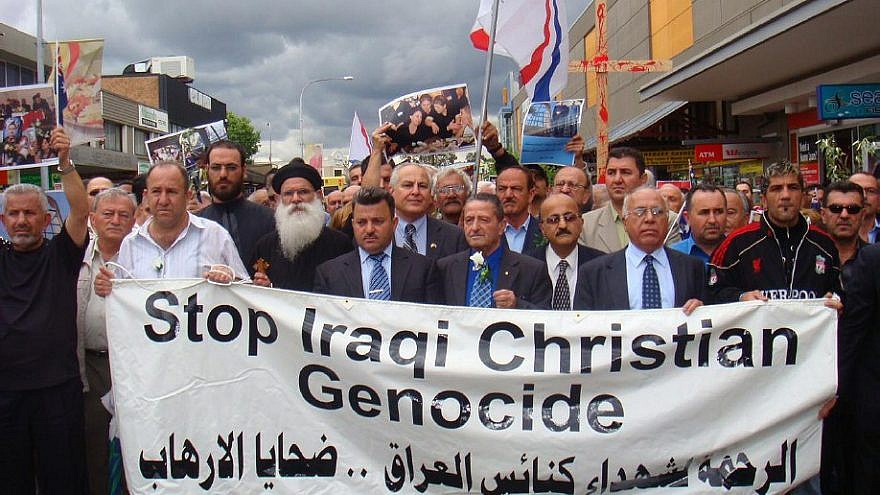With the ongoing plight of Middle East Christians and other minorities at the hands of Islamic extremists, some 73 national and local organizations have been calling on the Senate to pass a stalled bipartisan bill that, if enacted, would make it policy “to regard the prevention of genocide and other atrocities as in its national security interests.”
The Elie Wiesel Genocide and Atrocities Prevention Act passed the House of Representatives by more than a two-thirds majority this past July after being introduced in June 2017 by Ann Wagner (R-Mo.) and Joe Crowley (D-N.Y.).
The U.S. government officially designated the persecution of Yazidis, Christians and other minorities in Iraq and Syria at the hands of the Islamic State as a genocide in 2016.
One of the organizations is In Defense of Christians, which is a nonprofit and nonpartisan group that advocates the protection of vulnerable Mideast Christians. “IDC believes that preventing such violence and ongoing persecution against the most vulnerable communities is a matter of national security to the United States and should be treated as a priority,” the group said in a statement.
“IDC calls on all Members of Congress to co-sponsor and swiftly pass the Elie Wiesel Act into law,” said its executive director, Philippe Nassif. “IDC believes this legislation allows for a bipartisan-led, solutions-oriented action plan that establishes the necessary tools for violence prevention and related challenges.”
Other groups behind the measure include the Philos Project, which promotes Christian values in the Middle East.
“This bill matters because it makes prevention of genocide and mass atrocities a national security priority,” Philos Project founder and executive director Robert Nicholson told JNS. “It equips American diplomats and military officers with the tools they need to identify and mitigate human catastrophes.”
The biggest threat to Mideast Christians, according to Nicholson, is the “marginalization and persecution at the hands of their Muslim neighbors.”
“The second greatest threat is the ignorance, disinterest and apathy of many Western countries,” he continued. “Without a friend, many Middle Eastern Christians have begun to lose hope.”
“Morality matters in our foreign policy,” he added. “We can’t stop all the bad things that happen in the world, but we certainly can try to stop the worst of them.”
A spokesperson for Young’s office did not answer if the legislation would be passed alone or as an amendment inserted into upcoming legislation.
“Our office is working to move the bill forward,” Amy Grappone told JNS.

























